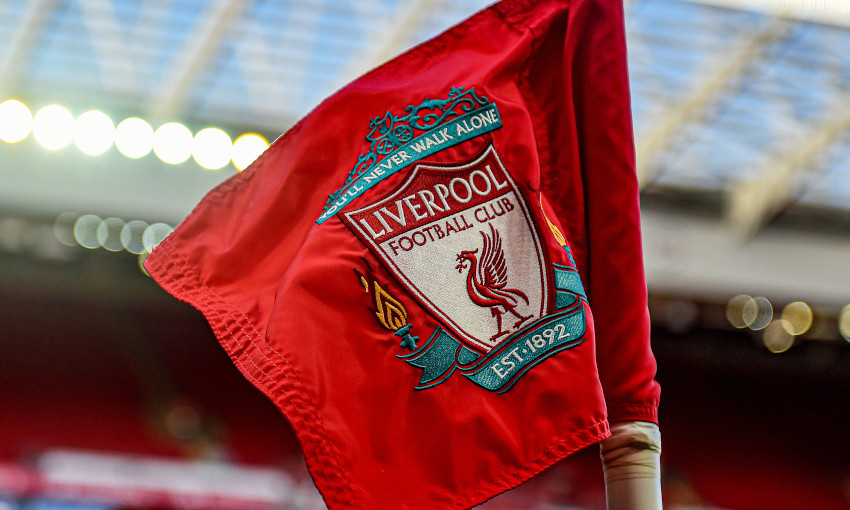'I could have run forever that night at Anfield'
"My dad's dream was always to see one of his three sons play at Anfield in Liverpool red – and it turned out to be his daughter. It was one of his proudest moments, seeing his daughter lead out the team as captain."
When Sophie Bradley-Auckland leads out Liverpool FC Women for the first ever Women’s Super League game at Anfield on Sunday, one person more than any other will know how she will be feeling.
- Tickets for LFC Women v Everton are available from the Anfield ticket office until 3pm on Saturday November 16
The pride is still evident in Julie Griffiths’ voice as she recalls the moment on December 9, 1997 when she and her teammates made history by running out for the first women’s derby at Anfield.
Julie, now 50, was the team captain and still remembers every moment of that night under the Anfield floodlights.
“When I heard about Sunday’s game, I was so excited for the players,” she says. “As a Liverpool player there is no better honour than to walk out on that pitch and hopefully with a big crowd. I want everyone there.
“Anfield will give the team inspiration. I know it did for me, that night I could have run forever. I was on adrenaline all night.
“The only advice I have for the girls is to take in every moment, from the minute you walk in the changing rooms, enjoy it, but when you get on that pitch it’s just another level on how you will feel. There’s no better stadium in the world, I just love the place.”
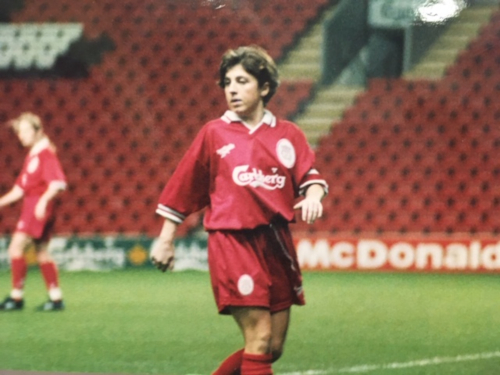
Julie Griffiths at Anfield
Julie, from West Derby, was born into a family of fanatical Reds and versed in the club’s culture from a very young age.
“I was six when I stood on the Kop for the first time with my brothers. They’d lift me up on the barriers. I grew up with this wonderful team winning everything in the ‘80s, it was massive in our family life.
“Never in a million years when I started playing did I believe it would come to playing for Liverpool as captain. We were still amateur and I was working full-time at the shipping company where I still work now 32 years on.
“To get a derby in 1997 played at Anfield, with no social media and very little press coverage, was all down to our chairman, Sylvia Gore, and the great Brian Hall.”
Only the Main Stand was open for the game but a crowd of 5,000 turned up, though Julie wasn’t able to fulfil one of the traditional parts of an Anfield game for a Liverpool player.
“I didn’t touch the ‘This is Anfield’ sign – I couldn’t reach it at 4ft 10-and-a-half! But it was incredible,” she smiles.
“Leading the team out as captain in a Merseyside derby knowing all my family were in the stand, I could talk about it forever.”
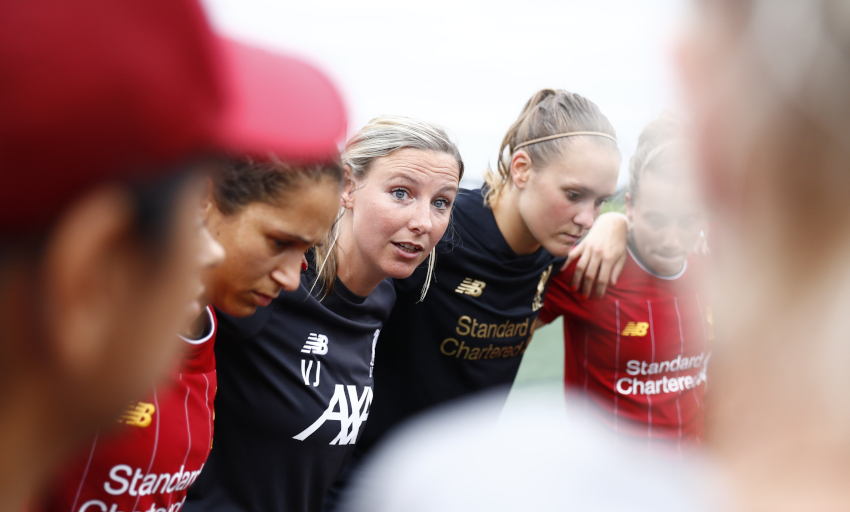
Julie, who played ‘anywhere left’, started her football journey at 21 at Leasowe Pacific, who at the time were North West champions.
“I moved to Knowsley United. Sylvia Gore, who was a real pioneer in the women’s game, worked tirelessly with Brian Hall and the club became affiliated to Liverpool – that’s when we became Liverpool Ladies around 1993-94 I think.
“That was just amazing – training facilities became better, we were walking around in the Liverpool colours, we had to be tracksuited up. Everywhere we went we were representing the club, Kirkby Sports Centre was our home ground.
“We became Liverpool just as the FA formed the first women’s Premier League and things took off then.
“It’d be incredible to be playing as a professional now but when I played was a crucial time in the women’s game. It’s when we went from playing in parks to playing in stadiums like Highbury.
“I’m so proud and delighted at what is happening now but we started the process.”
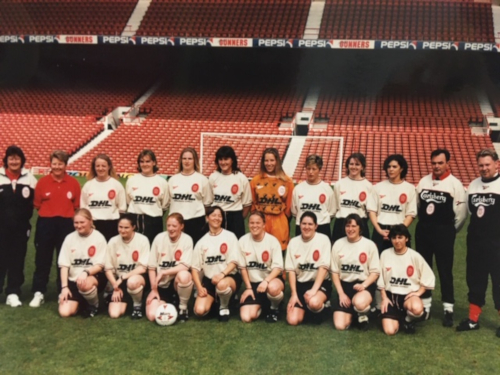
The 1997 LFC squad at Highbury
While Arsenal were the dominant women’s side at the time, Julie and her squad came agonisingly close to putting silverware on the Anfield sideboard.
“We were beaten FA Cup finalists three times, it was the big tournament. It shows we were one of the big teams. We lost two finals to Arsenal and the final one to Croydon at the New Den. We lost on penalties, it was soul-destroying, we were the stronger team. We were always there or thereabouts.
“I packed in at Liverpool when I was 32. I felt there were younger kids coming through, but I regret it. I took a couple of months out and went to play at Chester for a couple of years, helping the younger players. I love that side of it and I’m involved in Riversdale at Aigburth now. I’m even doing a bit of playing still!”
And she is excited to have been one of the pioneers for the women’s game on Merseyside.
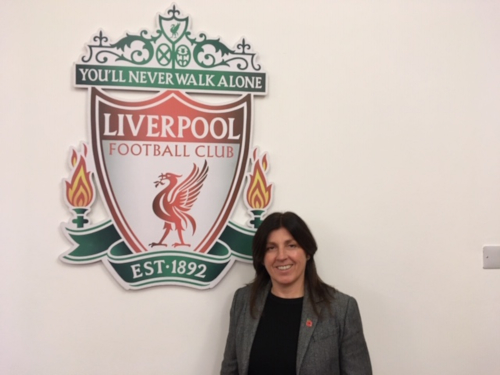
Julie Griffiths
“I feel I’ve come full circle. I started off grassroots in the women’s league, I went to the pinnacle of my playing career with Liverpool and now I’m back with a grassroots team where I’m coaching and still doing a bit of playing.
“But I look at the women’s game now and think it’s remarkable. Just wow!”


